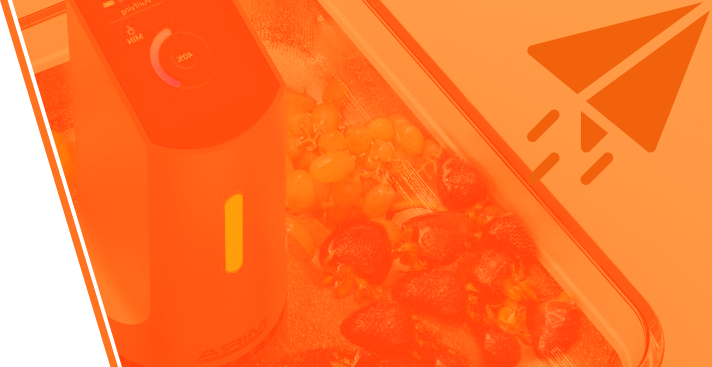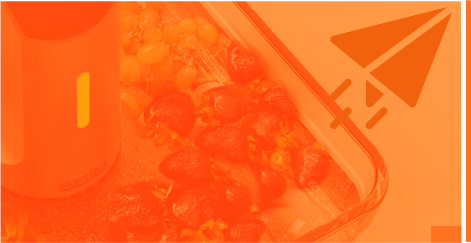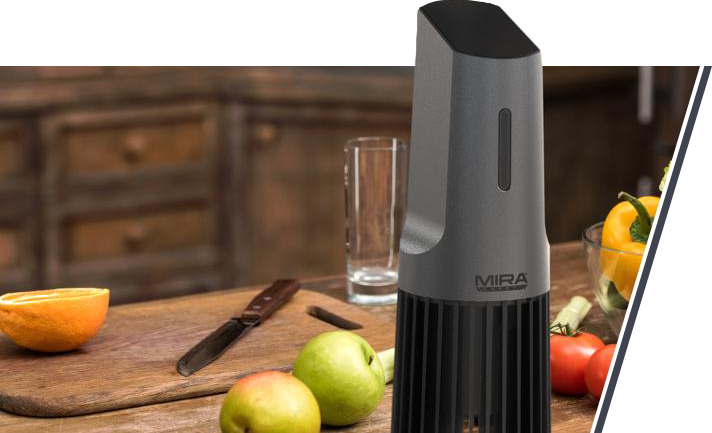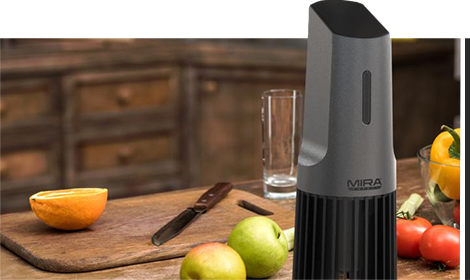Eating healthy is essential, and that’s no news. Yet, it can be hard to know what clean eating really means.
In this article, we'll explore the concept behind eating clean and offer insight into how you can decide whether this approach is right for your lifestyle. We will walk you through some basics about what clean eating is all about and tips for making sure your food choices support your health goals rather than hindering them.
Read our breakdown on Organic Foods here to learn more about other popular dieting trends.
Table of Contents
-
01
What Is Clean Eating?
-
02
What Are the Benefits of Eating Clean?
-
03
How Can You Start Eating Clean?
-
04
Ready to Start Practicing Clean and Healthy Eating?
What Is Clean Eating?
If you look up “clean eating” online, you’ll find many articles from many different authors. But it simply means eating foods that are as close to their original condition as possible. That typically means preparing meals from scratch to make sure they’re as "clean" as possible.
The process of clean eating provides your body with nutritious and healthful foods. Clean meals provide plenty of vitamins, minerals, high-quality protein, and healthy fats. These promote heart and brain health, aid in weight control, create a more robust immune system, and boost energy levels, among other things. Many people find foods more delicious in their natural condition.

(Image source: Image courtesy of Clean Eating Mag)
Eating organic foods is a good step forward, but more is often needed for clean and healthy eating. Why? Because in today’s age, even fresh food like fruits and vegetables are covered in multiple pesticides and bacteria, being a block in your way towards a healthy lifestyle.
It may be intimidating to explore eating a clean diet, but the advantages may surpass any qualms you have.
What Are the Benefits of Eating Clean?
Having a clean eating diet is an essential component of a healthy lifestyle, whether you want to lose weight or just maintain your health as you age. Reducing harmful foods from your daily intake has several advantages since the substances included in unhealthy, processed meals might predispose you to multiple diseases.

(Image source: Image courtesy of WATT Poultry)
These are some of the health benefits of following a clean eating lifestyle:
1)More Energy
A well-balanced diet with nutrient-dense foods that adequately nourish your body promotes energy and productivity. Numerous nutrients, including B-complex vitamins and iron, assist your cells in accessing fuel and functioning efficiently.
If you eat clean, this also aids in blood sugar regulation, allowing you to avoid fatigue-inducing blood sugar spikes that often occur after consuming processed carbs such as sweets or refined grains. The Michigan State University Extension suggests starting your day with fiber-rich whole grains, which will supply you with energy that will last you until lunch.
2)Cancer Prevention
Nobody wishes to hear those three dreadful words: "You have cancer." Despite this, the numbers are not that optimistic. The American Cancer Society says that one in every two men and one in every three women will develop cancer throughout their lifetime. However, if you are following a clean eating lifestyle, chances are that you will be a lesser cancer risk.
Numerous studies have verified the Mediterranean diet's cancer-preventive properties. Fruits, vegetables, whole grains, nuts, spices, and olive oil are all hallmarks of the Mediterranean diet. In moderation, this diet also contains yogurt and red wine. Regarding protein, the focus is on fish, cheese, eggs, and poultry, with red meat consumption limited to just a few times a month.
3)Improved Mental Health
The process of clean eating can also help you feel more in control of your diet and life, especially if you are struggling with disordered eating.
It doesn't require counting calories or points, which can be stressful and depressing when faced with an eating disorder. Instead, clean eaters focus on making healthy choices about what they eat and drink. This makes clean eating easier to follow than other diets that restrict certain foods or plan meals around a point system of organic foods. In addition to being less stressful for you emotionally, this dieting may also improve your mood and mental health.

(Image source: Image courtesy of Harvard Health Publishing)
4)Stronger Immune System
When you consume processed foods and sweets, your immune system needs energy to protect your body against what you're putting in, leaving very little energy to protect against sickness.
A clean eating habit leads to a more robust immune system that can fight infections and illness more effectively. And if you do become sick, your body will have more resources to heal faster.
5)Cardiovascular Diseases Prevention
Following a clean eating diet keeps you healthy in the long run and lowers your chances of developing any heart disease.
Vegetables and fruits loaded with vitamin C will strengthen your blood vessels, reduce your risk of heart disease, and help you prevent stroke and increased blood pressure. Furthermore, clean food, which is high in unsaturated fat and includes nuts, avocado, and olive oil, helps lower cholesterol and combat cardiovascular disease.
How Can You Start Eating Clean?

You now know the perks of eating clean. But what are the exact steps you need to take to call yourself a clean eater?
We have put together some habits, such a lifestyle includes:
1)Eating Fewer Processed Foods
All around the media, specialists recommend eating minimally processed foods. But you might wonder what unprocessed, and minimally processed foods are in the first place. And that’s a fair question to have.
The United Nations has a food classification scale known as the NOVA food classification. It categorizes food into four categories:
A)Unprocessed or Minimally Processed Foods
Fresh blueberries, roasted almonds, diced veggies, and other items with minor variations fall into this category. These meals are cooked in this manner to make them more accessible.
B)Processed Food Ingredients
This category includes butter, oils, sugar, and salts. They typically include natural ingredients that have been slightly modified. They were crushed, purified, milled, or dried to be used more efficiently or stored for extended periods.
C)Processed Food Ingredients
Canned fish, fruits in syrup, bottled veggies, cheese, fresh bread, or other alternatives manufactured with additional salt, oil, sugar, or other items from groups one or two are examples. The majority of these dishes include only two or three ingredients.
Processed food can be eaten on its own or added to other meals. This food was treated to make it more stable or to improve its attributes.
D)Processed Food Ingredients
This category includes foods that are often the result of lengthy manufacturing processes, and unfortunately, they make up a large portion of today’s convenience foods.
Highly processed foods are made from unhealthy fats and chemicals and bear little resemblance to group one items. These foods, like others, include carbohydrates, oils, fats, and salt. However, they also include casein, lactose, gluten, whey, hydrogenated oils, protein isolate, maltodextrin, or inverted sugar.
The less processed food you consume, the closer you are to an actual clean eating diet. Therefore, to be able to affirm that you are following a clean eating lifestyle, organic foods should be a constant element in your food choices.
2)Cutting Out Added Sugars
Sugar naturally exists in many organic foods, including fruits and vegetables, milk, cheese, and grains.

(Image source: Image courtesy of Taste of Home)
However, numerous types of added sugar and syrup can be found in processed and prepared meals, such as ice cream, cookies, candies, and soda, as well as less visible goods, such as ketchup, spaghetti sauce, plain yogurt, bread, and salad dressings.
You might be shocked to learn how many "healthy" items you consume contain added sugars. Energy bars, fruit, and flavored yogurt are all "healthy" foods, yet many are high in sugar. So, the first step in reducing extra sugar in your diet is carefully reading labels and choosing sugar-free items.
Reducing sugar-sweetened drinks is an easy strategy for many people to lower their added sugar intake.
Giving up juices and soft drinks might be difficult, but here are two easy suggestions:
-

Coffee and tea. Adding a pinch of sugar (or artificial sweetener) and a splash of milk are OK, but avoid adding extras like flavored syrups and whipped cream. Many popular coffee beverages include a lot of sugar – and calories.
-

Make the switch to diet drinks. Sodas without added sugar and soft drinks might help you avoid sugary drinks. However, they will not help you stop drinking soft drinks and will not necessarily help you lose weight.
3)Introducing Whole Grains to Your Diet
To eat clean, you have to introduce whole grains into your diet. Why? Because whole foods include more fiber and minerals than white grains, they should account for the bulk of your carbohydrates.

(Image source: Image courtesy of Cleveland Clinic)
White bread, pasta, wheat, and rice should all be avoided. Replace these items with whole grains alternatives, such as whole wheat bread, pasta, and flour, as well as brown rice.
In case you are looking for more whole food alternatives to eat cleaner, here you have some items:
-

Barley
-

Buckwheat
-

Bulgur (cracked wheat)
-

Millet
-

Oatmeal
-

Popcorn
It can be challenging to discern what sort of grains can be found in a product, particularly bread. A brown loaf, for example, may not be whole wheat; the dark color may be due to additional coloring.
Check the product label or the Nutrition Facts panel if you're unsure whether an item contains whole grains. All you need to do is look for the word "whole" on the food labels and ensure that whole grains are listed first in the ingredient list.
4)Eliminating Pesticides through Active Oxygenation
Many self-described clean eaters ignore the risks of pesticides and other food contaminants that can be found even in organic, fresh foods.
Pesticides are by far the most harmful of all the food contaminants to which humans are exposed Pesticide exposure can cause headaches, dizziness, breathing difficulties, muscle weakness, and nausea. Pesticides are endocrine disruptors, carcinogens, and neurotoxicants.
Furthermore, pesticides can induce genetic harm, predisposing the body to future illness. Getting rid of them from your diet is a fantastic place to start when it comes to establishing a healthy diet and immune system.
Thankfully, in today’s digital age, solutions have been developed to allow you to eat healthfully without having to worry about the damage pesticides can create. The DTX-1 Food Detoxifier is one of the only portable kitchen gadgets to molecularly cleanse your meat, fruits, and veggies for safe and nutritious dining.

It naturally eliminates pesticides, germs, molds, toxins, and other pollutants from the surface of foods using Active Oxygenation technology. You can now clean everything from fresh leafy greens to a ribeye steak!
Ready to Start Practicing Clean and Healthy Eating?
Now that you know the benefits of a clean eating lifestyle and the changes you need to make to achieve one, it’s time to start practicing.
From including more organic fresh foods in your diet to eliminating pesticides from the natural state of aliments through active oxygenation, it’s not hard to take actionable steps towards improving your eating habits.
Do you want to start eating clean? Let us know what the first changes you will make in your day-to-day lifestyle are!





